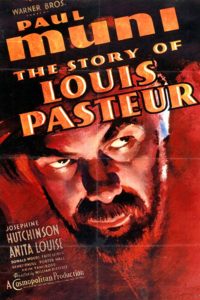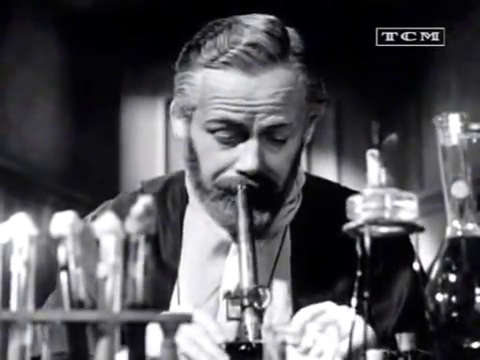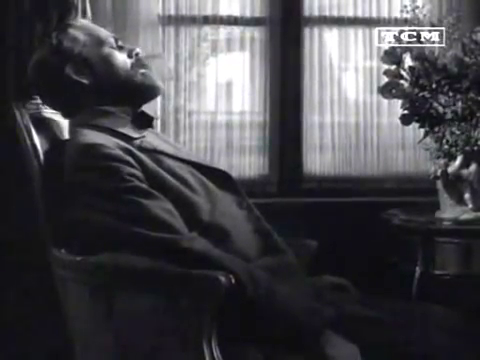“Remember our aim: find the microbe, kill the microbe!”
|

Synopsis:
In 18th century France, chemist Louis Pasteur (Paul Muni) — with support from his loving wife (Josephine Hutchins) and daughter (Anita Louise) — ignores the criticisms of a skeptical doctor (Fritz Leiber) while developing a vaccine against anthrax and a cure for rabies.
|
|
Genres, Themes, Actors, and Directors:
- Akim Tamiroff Films
- Biopics
- Do-Gooders
- Doctors and Nurses
- “No One Believes Me!”
- Paul Muni Films
- Scientists
- William Dieterle Films
Review:
Groundbreaking chemist Louis Pasteur is given full star treatment in this Oscar-nominated biopic which And You Call Yourself a Scientist!‘s reviewer has an openly “love-exasperation” relationship with. As she puts it, while she’s “delighted that this film was made, and that it paved the way for others of its kind”, “the fact remains that it is a fairly basic rendering of an important historical story” that “never really engages with its science” and “never acknowledges the extent to which Pasteur’s own work built upon that of others.” Well, biopics tend to do that, don’t they — so the question remains whether the story told here is a compelling one, but I’m afraid it’s mostly not. A side romance between Muni’s daughter and a young scientist (Donald Woods) merely distracts, and Pasteur’s foil — skeptical Dr. Charbonnet (Leiber) — is conveniently portrayed as uniformly combative until a pivotal narrative moment. With all that said, it’s easy to imagine 1930s audiences eager to learn more about this tenaciously brilliant man who was responsible for saving so many lives, and Muni is fine in the leading role.
Redeeming Qualities and Moments:
- Paul Muni as Louis Pasteur

- Tony Gaudio’s cinematography

Must See?
No, though Muni fans or Oscar-completists will of course want to check it out.
Links:
|
One thought on “Story of Louis Pasteur, The (1936)”
First viewing. A once-must for its place in cinema history and for its subject matter.
Having just watched ‘The Life of Emile Zola’, it’s easy to explain why I prefer Paul Muni in that film over this one – although both are good films and Muni is fine in both of them. ‘Zola’ is about 30 minutes longer – and that allows more texture to both the film and Muni’s performance. ‘Pasteur’ is rather concise but it still feels a bit rushed.
I happen to like films about medical science and, overall, find them important to observe – even if it’s also the case that such films can require supplementary study elsewhere. They also seem to have value as studies in human behavior (i.e., how people can be subject to prejudice or mistrust, or how medical institutions can feel threatened). The history of such films has continued to the pressent time, with fine contemporary examples such as ‘Lorenzo’s Oil’ and ‘And the Band Played On’.